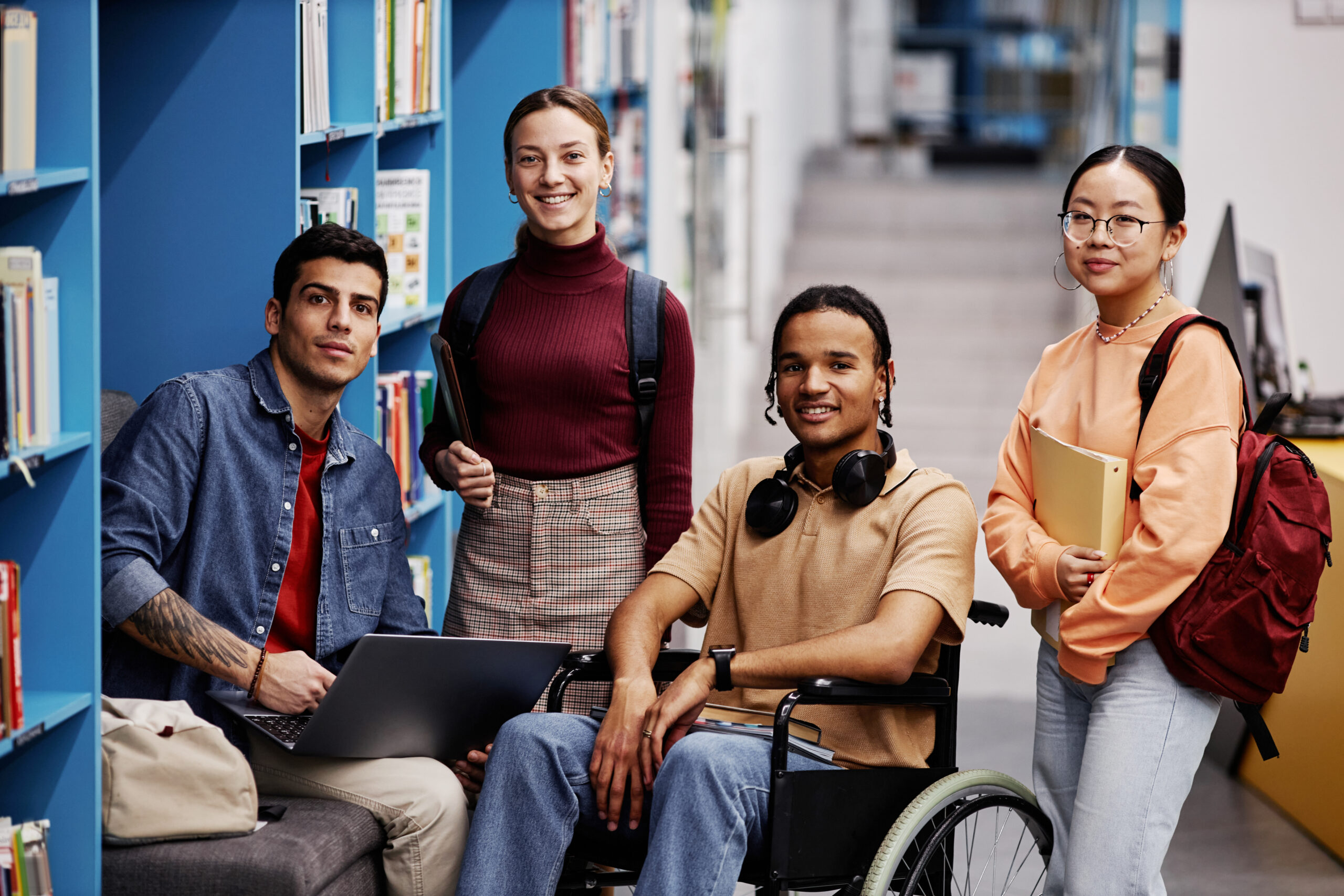Stories
Emma, Undergraduate Student
University of Waterloo, 2024

Challenges in the educational journey
Throughout my educational journey, I faced significant challenges, particularly with late diagnosis of dyslexia and accessibility issues. Discovering my dyslexia in grade 11 came with a hefty financial burden for assessment, highlighting discrepancies in accessibility due to financial circumstances. I recognize my privilege in accessing accommodations, as I witnessed peers struggling to obtain necessary support due to the financial aspect of obtaining medical documentation. Navigating accommodations has been an ongoing battle, I have had difficulties in comprehending exams due to spelling errors, which significantly impacted my grades. Despite these challenges, I sought support from accommodation advisors and understanding instructors who provided valuable resources like pre-recorded lectures. Utilizing assistive technology such as dictation and exploring options like text-to-speech tools proved beneficial in managing coursework and exams. Transitioning back to in-person environments, especially for exams, posed new hurdles, emphasizing the ongoing need for accessible accommodations and institutional responsiveness to diverse learning needs.
Access to digital learning resources
Accessing digital learning resources has been crucial for me, especially given my reliance on tools like text-to-speech due to dyslexia. I use this software primarily for writing assignments, which significantly improves efficiency and accuracy. However, transitioning back to in-person exams has presented challenges due to my reliance on text-to-speech technology. Pre-recorded lectures allow me to review key information and fill in any gaps in my notes. Sometimes, I even resort to recording lectures myself to ensure I capture everything accurately. This adaptability has been essential for my academic success.
Attitudes and societal perceptions
Attitudes and societal perceptions about disabilities greatly influence my educational environment. There was a time during a group project, where my dyslexia became apparent when I struggled with spelling in a collaborative document. While some classmates were understanding, one person's insensitive comment about my ability to spell in university left me feeling insecure and judged. This experience highlights the pressure to disclose disabilities and the potential for negative assumptions about academic capabilities. I feel like there is the expectation to disclose disabilities creates additional stress and anxiety. I sometimes feel compelled to reveal personal information regarding my disability that I would rather keep private. This pressure can stem from societal norms that equate openness about disabilities with acceptance or inclusion. The decision to disclose becomes not only a matter of personal comfort but also a delicate balancing act between safeguarding privacy and seeking validation and support.
Effectiveness of support systems
Navigating university accommodations and accessibility services has been a mixed experience, shaped by both positive and negative interactions. While seeking support through these services, I've encountered both helpful assistance and challenges, such as inconsistencies in exam time allocations and occasional unfriendly attitudes, likely stemming from overwhelming demand. Despite these hurdles, I've found value in utilizing additional services like tutoring and proactive communication with teachers to ensure I receive the support I need. Challenges persist in the implementation of my accommodations due to communication inconsistencies and occasional misunderstandings. Despite occasional shortcomings, effective accessibility services have significantly contributed to my academic success, providing essential accommodations like extra exam time and access to assistive technology. These experiences emphasize the importance of ongoing advocacy efforts and the need for improved understanding and coordination within educational institutions to ensure equitable support for students with disabilities.
Suggestions for institutional support
I suggest that the institution offer pre-recorded videos as a standard accommodation option rather than relying on students to request them. This would ensure equal access to course material and reduce stress. While my institution has a strong accommodation center, I believe that more positive and supportive interactions, especially during exam sessions, would greatly enhance the program's effectiveness.
Student transitions
I have concerns about transitioning to post-secondary education and the workforce, especially regarding accommodations. The process of getting accommodations in university was challenging enough, and I worry about restarting this process in a new environment. I'm nervous about tasks like typing emails in the workforce, where there may not be as much time for review or opportunities to use assistive technology to support me. While I haven't reached this stage yet, I hope for smoother transitions and better support systems.
